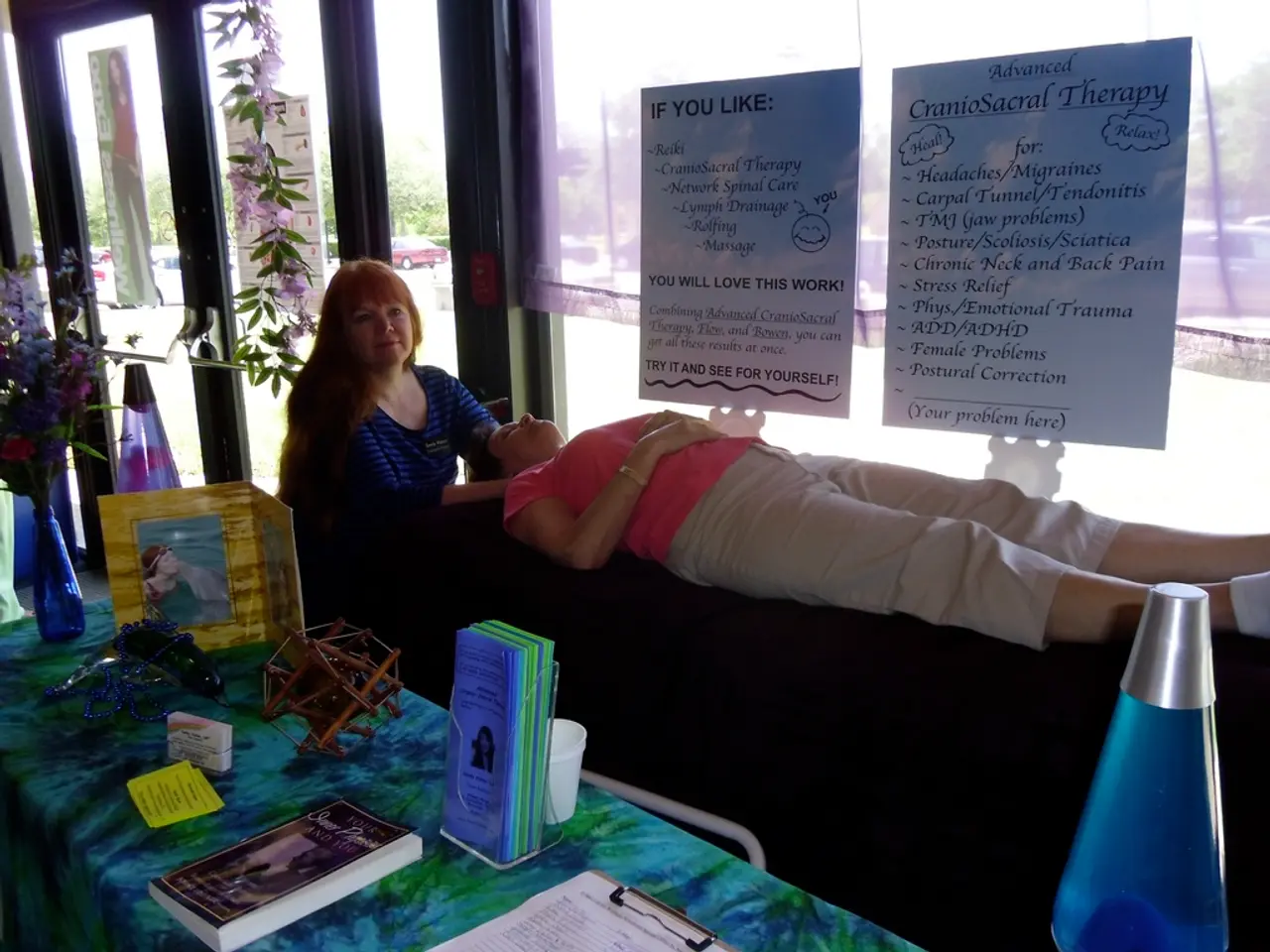Treatments for Depression in Bipolar Disorder: Varieties and Additional Remedies
In managing bipolar depression, a combination of medications, psychotherapy, and lifestyle modifications is often employed to provide the best possible outcomes.
Medications play a significant role in treatment plans. Mood stabilizers such as lithium and lamotrigine help regulate mood swings and stabilise brain chemistry. Antipsychotics like those that block dopamine receptors in the brain, are used to manage persistent symptoms during manic or depressive episodes. Antidepressants, while used with caution due to the risk of triggering mania, can help alleviate depressive symptoms when prescribed alongside mood stabilizers.
Psychotherapy is another crucial component of treatment. Cognitive Behavioral Therapy (CBT), Family-focused therapy, Interpersonal and Social Rhythm Therapy, Dialectical Behavioral Therapy (DBT), and Support groups are all options that help patients and their families better understand bipolar disorder and develop strategies to prevent relapse.
Lifestyle modifications also play a vital role in maintaining mood stability and overall well-being. These include keeping a consistent sleep schedule, maintaining a healthy diet and regular exercise, managing stress through relaxation techniques, avoiding alcohol and drugs, keeping a mood journal to track symptoms and triggers, and building and maintaining a support network of family and friends.
Regular monitoring and adjustment of the treatment plan by healthcare providers are essential due to the complex and changing nature of bipolar disorder. Electroconvulsive therapy (ECT) may be considered in treatment-resistant cases, but it is less typical as a first-line approach.
Together, this multifaceted approach helps manage bipolar depression symptoms, reduce mood episode frequency, and improve quality of life. It's important to note that treatment plans can vary greatly depending on a person's symptoms and type of bipolar disorder.
Approximately 82.9% of people with a bipolar disorder diagnosis in the United States have a severe impairment, underscoring the importance of effective treatment and ongoing care. If you or someone you know is experiencing worsening symptoms or side effects when taking medication for bipolar disorder, it's essential to contact a doctor.
References:
- National Institute of Mental Health. (n.d.). Bipolar Disorder. Retrieved from https://www.nimh.nih.gov/health/topics/bipolar-disorder/index.shtml
- American Psychiatric Association. (2013). Practice Guideline for the Treatment of Patients with Bipolar Disorder. Retrieved from https://psychiatryonline.org/doi/10.1176/appi.books.9780890425596
- National Alliance on Mental Illness. (n.d.). Bipolar Disorder. Retrieved from https://www.nami.org/About-Mental-Illness/Mental-Health-Conditions/Bipolar-Disorder
- National Institute for Health and Care Excellence. (2014). Bipolar Disorder: The Management of Bipolar Disorder in Adults in Primary and Secondary Care. Retrieved from https://www.nice.org.uk/guidance/cg185/resources/bipolar-disorder-the-management-of-bipolar-disorder-in-adults-in-primary-and-secondary-care-pdf-7175988652
- American Psychological Association. (2019). What Is Cognitive-Behavioral Therapy (CBT)? Retrieved from https://www.apa.org/ptsd-guideline/patients-and-families/cognitive-behavioral-therapy
Schizophrenia, a different mental disorder, typically doesn't accompany bipolar depression, but science continues to explore the possible connections between mental-health conditions. Headaches, on the other hand, can be a symptom in various health-and-wellness aspects, including mental health, and they can be managed through stress reduction, which is a key strategy in the lifestyle modifications for managing bipolar depression.




